Developed by the Mozilla Foundation, Mozilla Thunderbird is a cross-platform email client that’s known for being one of the most secure email services available. It is easy to use and set up and has many features to help its users have a better experience. One of its biggest features would be the ability to open up multiple tabs just like a web browser which enables you to load different emails in separate tabs.
Even if Mozilla Thunderbird is one of the most secure email services out there, to fully protect your personal information and gain total anonymity, you still need the help of a Mozilla Thunderbird proxy. A Mozilla Thunderbird proxy will handle all of your web requests for you. This effectively hides your own IP address as any website you visil will only be able to see the IP address of the proxy server.
Hackers or people with malicious intent will not be able to steal your personal information and track your real life location because the IP address that the web server can see is not yours. Through rotating proxies and having a different IP address each time you use Mozilla Thunderbird, you would have total anonymity and full protection over your privacy.
The best Mozilla Thunderbird proxies to use would be either residential proxies or datacenter proxies. If you want to gain total anonymity and full protection of your privacy, then residential proxies are the one for you. If you value speed and want a faster internet connection when sending and receiving emails, then datacenter proxies are what’s best for you.
Let’s set up a Mozilla Thunderbird proxy server.
Note: Mozilla Thunderbird will automatically copy your operating system’s proxy settings.
For Windows:
To set up proxies in Windows, simply search for “Proxy Settings” in your windows search bar and open the search result.
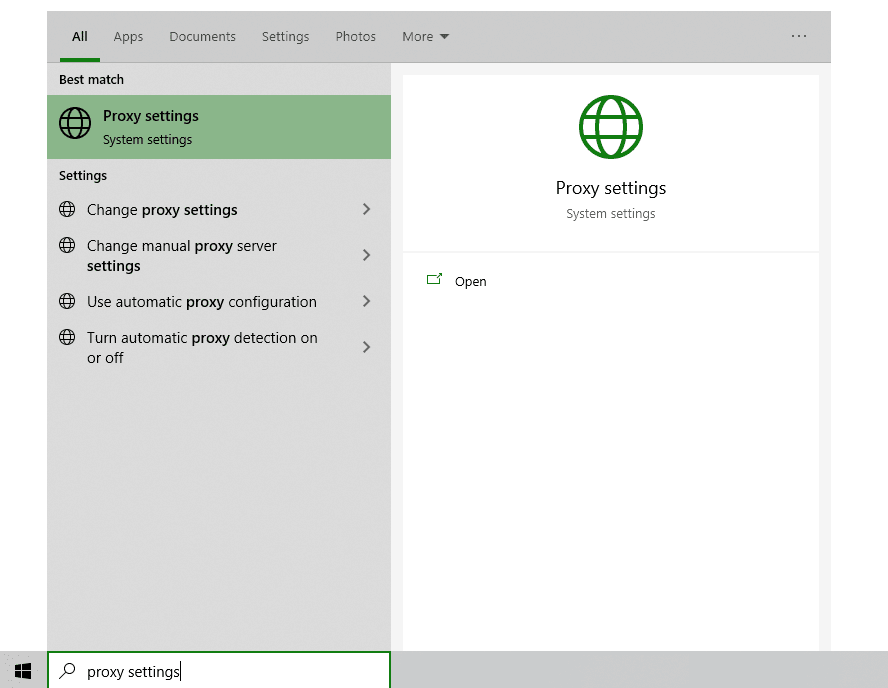
You are then given two options to choose from: Automatic proxy setup or Manual proxy setup. If you want windows to automatically detect your proxy settings, choose the first option. Choose the second option if you want to utilize a specific ip address and port number.
If you chose the first option, then:
- Turn on Automatically detect Settings
- Turn on Use setup script
- Enter the script address
- Click Save
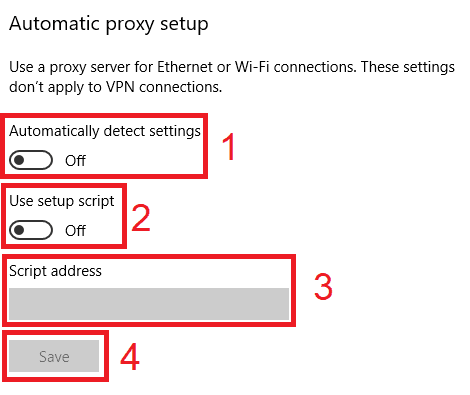
If you chose the second option, then:
- Turn on Use a proxy server
- Input both server address and port number
- If you have any addresses you would like to visit without a proxy, enter them here
- Turn on Don’t use the proxy server for local addresses check box if you want to access a local server without a proxy
- Click Save
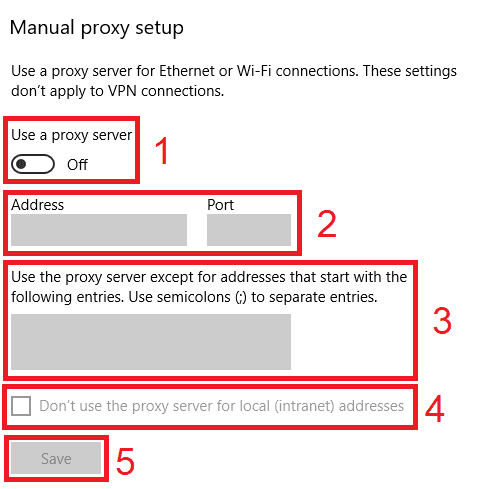
For Mac.
To start configuring your proxy settings in MacOS, simply:
Step 1. Click on the Apple Icon.

Step 2. On the drop down menu, click on “System Preferences”.
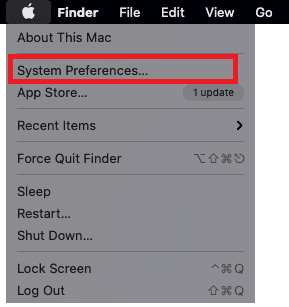
Step 3. Click on “Network”
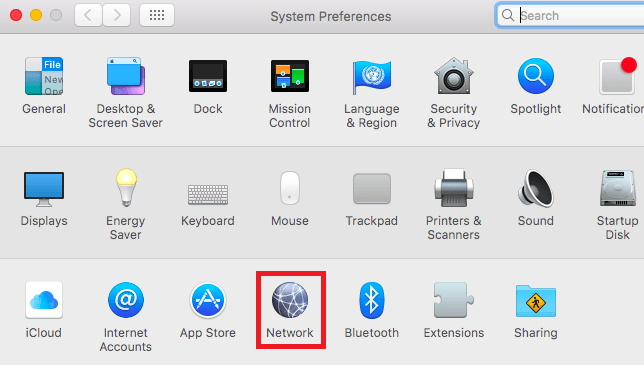
Step 4. Click on “Advanced”
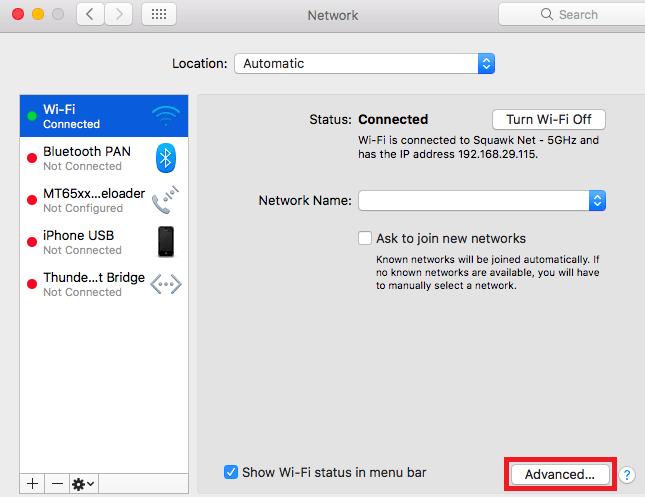
Note: Make sure to connect to your wi-fi first.
Step 5. Click on “Proxies”

This should then redirect you to MacOS proxy settings. MacOS is more straightforward compared to windows. You only have one option which is to manually configure your proxy server.
Here are the steps to follow:
- Select which proxy IP protocol you want to configure. This depends on which protocols your proxy service provider offers.
- Turn on Secure Web Proxy
- Input the Proxy Server Address and Port Number
- Click OK to save the configurations
Note: You may be prompted for your Mac user password to save your settings.
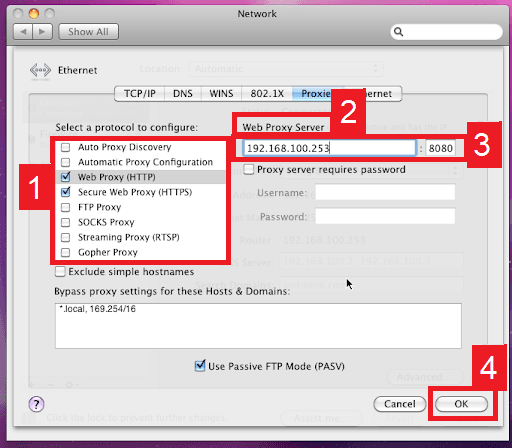
Congratulations! You have now finished configuring a Mozilla Thunderbird proxy server. Note that the first time you visit it, there will be a pop up asking for your login credentials.









